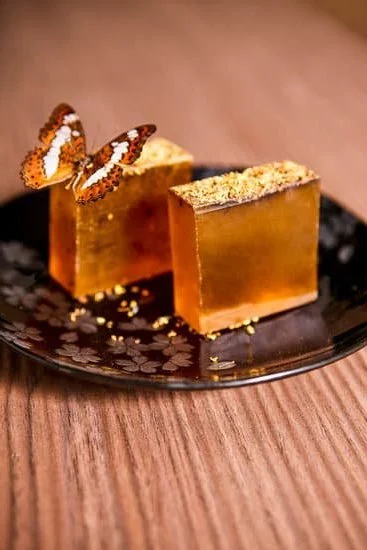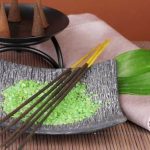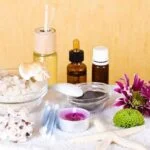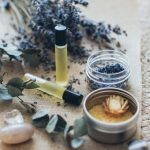
Aromatherapy, the practice of using essential oils for therapeutic benefits, has been gaining popularity in recent years for its potential to support the immune system. This article will delve into the fascinating connection between aromatherapy and immune system support, examining how specific essential oils can help boost immune function and promote overall health.
To understand the impact of aromatherapy on the immune system, it is important to have a basic understanding of how the immune system works. The immune system plays a crucial role in defending our bodies against harmful pathogens, viruses, and bacteria. When the immune system is strong and balanced, it can effectively protect us from illness and provide vital support for optimal health.
Research suggests that certain essential oils possess remarkable properties that can enhance and strengthen the immune response. These natural plant extracts contain powerful compounds that have been found to possess antimicrobial, antiviral, and anti-inflammatory properties. By incorporating aromatherapy into our daily routines, we may be able to harness these benefits and give our immune systems an added boost.
Throughout this article, we will explore various aspects of aromatherapy’s relationship with the immune system. We will discuss specific essential oils known for their immune-boosting properties and highlight different methods of application. Additionally, we will examine scientific evidence and studies supporting the use of aromatherapy for immune system support.
Finally, we will offer practical tips on how to incorporate aromatherapy into your daily routine for enhanced immunity. Join us in this journey as we uncover the potential benefits that aromatherapy holds for our overall well-being.
Understanding the immune system
The immune system plays a vital role in maintaining overall health and protecting the body against harmful pathogens. Understanding how the immune system functions is essential to appreciate the benefits of aromatherapy for immune system support.
What is the immune system?
The immune system is a complex network of cells, tissues, and organs that work together to defend the body from invading microorganisms, such as bacteria, viruses, and fungi. Its primary function is to identify foreign substances and eliminate them to prevent infection and disease.
How does the immune system work?
When an infectious agent enters the body, the immune system produces a response known as an immune response. This response involves specialized cells called white blood cells that recognize and destroy the pathogens. The immune response also triggers inflammation as a protective mechanism to isolate and neutralize the invading microorganisms.
Additionally, the immune system has memory cells that remember specific pathogens it has encountered before. This enables a faster and more efficient response if exposure to the same pathogen occurs again in the future.
The importance of a balanced immune system
A well-functioning immune system is crucial for maintaining overall health. It helps prevent illness by recognizing and eliminating harmful substances or cells within the body. However, an imbalanced or weakened immune system can fail to protect against infections, leading to frequent illnesses and even chronic conditions.
Factors such as stress, poor nutrition, lack of sleep, and certain medical conditions can negatively impact the immune system’s ability to function optimally. This is where aromatherapy comes into play – by harnessing the power of essential oils, we can support our immune systems and enhance their effectiveness in defending against pathogens.
Overall, understanding how our immune systems work provides valuable insight into why aromatherapy can be beneficial for boosting immunity. By harnessing natural plant extracts through essential oils, aromatherapy offers a holistic approach to supporting our immune systems and promoting overall wellness.
Benefits of aromatherapy for the immune system
Aromatherapy is a holistic healing practice that utilizes the natural properties of essential oils to promote health and well-being. It has been found to have numerous benefits, including supporting the immune system. Essential oils are derived from plants and contain powerful compounds that can help strengthen the body’s defenses against infections and illnesses.
Certain essential oils have been found to have antimicrobial, antiviral, and anti-inflammatory properties, making them effective in boosting immune function. For example, tea tree oil is known for its antibacterial and antifungal properties, which can help kill harmful pathogens and protect against infections. Eucalyptus oil is another popular essential oil that has been shown to have antimicrobial effects and can also help relieve respiratory symptoms.
In addition to their antimicrobial properties, many essential oils are also rich in antioxidants. These compounds help neutralize free radicals in the body, which can damage cells and weaken the immune system. By using essential oils with high antioxidant content, such as lavender or frankincense oil, individuals can support their immune system by reducing oxidative stress.
Moreover, some essential oils have immunostimulant properties that can enhance the activity of white blood cells, which play a crucial role in fighting off infections. Oils like lemon or oregano oil contain compounds that stimulate the production of these white blood cells and strengthen the body’s defense mechanisms.
By incorporating aromatherapy into their routine, individuals can benefit from these immune-boosting effects of essential oils. Whether it is through diffusing oils in a room or diluting them for topical application on the skin, aromatherapy offers various methods for harnessing their positive impact on immune system health.
It is important to note that while aromatherapy can be an effective tool for supporting the immune system, it should not replace traditional medical treatments or be used as the sole method of treatment for serious illnesses. Rather, aromatherapy can complement other forms of therapy and promote overall health and wellness.
As with any alternative treatment, it is always advisable to consult with a healthcare professional before incorporating essential oils into one’s routine, especially for those with certain medical conditions or sensitivities.
Popular essential oils for immune system support
Lemon Essential Oil
Lemon essential oil is highly regarded for its immune-boosting properties. It is rich in limonene, a natural compound that has been shown to have antimicrobial and antioxidant effects. These properties make it an excellent choice for supporting the immune system. Lemon essential oil can help stimulate the production of white blood cells, which play a crucial role in fighting off infections and diseases.
To incorporate lemon essential oil into your routine, you can add a few drops to a diffuser or inhaler and breathe in the refreshing scent throughout the day. Another option is to dilute the essential oil with a carrier oil, such as coconut or jojoba oil, and apply it topically to your wrists or neck.
Tea Tree Essential Oil
Tea tree essential oil is widely known for its powerful antibacterial and antiviral properties. Studies have shown that it can effectively inhibit the growth of various pathogens and boost immune function. Tea tree essential oil contains terpinen-4-ol, a compound that has been found to have strong antimicrobial activity against bacteria, viruses, and fungi.
To use tea tree essential oil for immune system support, you can add a few drops to water in a spray bottle and use it as a natural disinfectant for surfaces around your home. Alternatively, you can mix it with a carrier oil and apply it topically to your skin to help protect against harmful pathogens.
Eucalyptus Essential Oil
Eucalyptus essential oil is well-known for its ability to support respiratory health, making it an ideal choice for immune system support. It contains eucalyptol, which has been shown to have expectorant and antimicrobial effects. Eucalyptus essential oil can help open up airways, reduce inflammation in the respiratory system, and ease congestion.
To experience the benefits of eucalyptus essential oil, you can add a few drops to a bowl of hot water and inhale the steam. This can provide relief from congestion and promote better respiratory function. Another option is to dilute the essential oil with a carrier oil and apply it topically to your chest or back before bed for overnight relief.
By incorporating these popular essential oils into your daily routine, you can provide natural support for your immune system and enhance its ability to protect your health. Remember to always choose high-quality essential oils from reputable sources and consult with a healthcare professional if you have any specific concerns or medical conditions.
Methods of application
When it comes to using essential oils for immune system support, there are several methods of application that can be effective. Each method has its own benefits and considerations, so it’s important to choose the one that works best for you.
One popular method is diffusing essential oils. Diffusers disperse the oil into the air in a fine mist, allowing you to inhale the aroma and experience its therapeutic benefits. This method is particularly effective for respiratory issues and enhancing overall immune function. To use a diffuser, simply add a few drops of your chosen essential oil to water and let the device do the rest.
Topical application is another common way to use essential oils for immune support. Since essential oils are highly concentrated, it’s important to dilute them with a carrier oil before applying them directly to the skin.
Carrier oils like coconut or jojoba oil help reduce the risk of skin irritation and allow for better absorption. You can mix a few drops of your chosen essential oil with a tablespoon of carrier oil and apply it to areas like the chest or wrists.
Inhalation is a simple yet effective method of using essential oils for immune system support. You can add a few drops of your chosen essential oil onto a cloth or tissue and inhale deeply throughout the day. Alternatively, you may also place a few drops on your pillow before sleep to promote better rest and immune function during the night.
Overall, choosing the right method of application depends on personal preference and desired effects. Some individuals may find diffusing more convenient for their daily routine while others may prefer topical application or inhalation. It’s important to note that certain essential oils may have specific recommendations for usage methods due to their potency or potential side effects. Always consult with a qualified aromatherapist or healthcare professional before using essential oils for immune system support.
| Method of Application | Description |
|---|---|
| Diffusing | Adding a few drops of essential oil to a diffuser to disperse it into the air, allowing inhalation of the therapeutic aroma. |
| Topical application | Diluting essential oils with a carrier oil and applying the mixture directly to the skin for absorption. |
| Inhalation | Adding a few drops of essential oil onto a cloth or tissue and inhaling deeply, or placing a few drops on a pillow before sleep. |
Research and studies
Research and studies have shown that aromatherapy can play a significant role in supporting and boosting the immune system. Numerous scientific investigations have explored the effects of essential oils on the immune system, providing valuable evidence for their effectiveness in enhancing immune function.
One study conducted by researchers at the University of Manchester found that certain essential oils, such as tea tree oil and eucalyptus oil, exhibited strong antimicrobial properties. These oils were able to effectively inhibit the growth of various pathogens, including bacteria and fungi. By eliminating harmful microorganisms, these essential oils can support the immune system by reducing the burden on its defenses.
Another study published in the journal Antimicrobial Resistance and Infection Control examined the immune-stimulating properties of lavender oil. The findings revealed that inhaling lavender oil resulted in an increase in natural killer cell activity, which plays a crucial role in identifying and destroying infected or cancerous cells within the body. This suggests that incorporating lavender oil into aromatherapy practices may help strengthen the immune response.
Furthermore, research conducted at Kyungpook National University in South Korea investigated the immunomodulatory effects of citrus essential oils, such as lemon and orange oil. The study demonstrated that these oils stimulated lymphocyte proliferation, an essential process for maintaining optimal immune function. The researchers concluded that citrus essential oils could be useful for improving overall immunity.
These studies provide compelling evidence for the use of aromatherapy as a supportive measure for bolstering the immune system. However, it is important to note that more research is needed to fully understand the mechanisms through which essential oils interact with our immune systems. Therefore, it is always advisable to consult with a healthcare professional before incorporating aromatherapy into your wellness routine.
Incorporating aromatherapy into your daily routine is a simple yet effective way to support your immune system. Whether diffusing essential oils throughout your home or applying them topically, there are various methods of application that can help promote immune health. Additionally, creating a balanced blend of essential oils known for their immune-boosting properties can amplify their effects. Some popular combinations include tea tree and lavender oil, or lemon and eucalyptus oil.
Safety precautions and considerations
Aromatherapy is a natural and effective way to support the immune system, but it’s essential to understand some safety precautions and considerations when using essential oils for this purpose. Dilution ratios play a crucial role in ensuring safe and effective use of essential oils. Dilution refers to the process of mixing essential oils with a carrier oil or another substance before applying them to the skin.
The most commonly recommended dilution ratio for adults is 2-3% for general immune support. This means adding approximately 12-18 drops of essential oil to every ounce (30 ml) of carrier oil or base product. For children or individuals with sensitive skin, a lower dilution ratio, such as 1%, is typically advised.
It’s also important to consider potential allergies when using aromatherapy for immune system support. Certain essential oils may cause allergic reactions or sensitivities in some individuals. Always perform a patch test on a small area of skin before using an essential oil topically. If any signs of irritation or allergic reaction occur, discontinue use immediately.
Additionally, pregnant women, individuals with underlying health conditions, or those taking medications should consult with a healthcare professional before using aromatherapy for immune system support. Some essential oils may interact with certain medications or have contraindications for specific health conditions.
Overall, practicing proper dilution ratios and being mindful of potential allergies are key safety precautions when using aromatherapy for immune system support. By following these guidelines, you can enjoy the benefits of essential oils while minimizing any potential risks.
| Dilution Ratio | Amount of Essential Oil | Amount of Carrier Oil/Base Product |
|---|---|---|
| 2-3% | 12-18 drops per ounce (30 ml) | 1 ounce (30 ml) |
| 1% (for children or sensitive individuals) | 6 drops per ounce (30 ml) | 1 ounce (30 ml) |
Tips for incorporating aromatherapy into your daily routine
Incorporating aromatherapy into your daily routine is a simple and effective way to support your immune system and promote overall well-being. Here are some practical tips to help you integrate aromatherapy into your everyday life:
- Diffuse essential oils: One of the easiest ways to enjoy the benefits of aromatherapy is by using a diffuser. Add a few drops of immune-boosting essential oils, such as tea tree, eucalyptus, or lavender, to your diffuser and let the soothing scents fill your space. This method not only helps purify the air but also allows you to inhale the beneficial properties of the oils.
- Create personalized blends: Experiment with different combinations of essential oils to create your own unique blend tailored specifically for immune system support. For example, you can mix equal parts of lemon, peppermint, and frankincense essential oils for an invigorating blend that may help boost immunity.
- Incorporate essential oils into your skincare routine: Many essential oils have antimicrobial and anti-inflammatory properties that can support skin health and overall immune function. Add a drop or two of tea tree or lavender oil to your facial cleanser or moisturizer for added benefits.
- Use essential oils in baths: Transform your bath time into a luxurious self-care ritual by adding a few drops of immune-boosting essential oils to warm bathwater. Oils like rosemary, thyme, or bergamot can uplift your mood while supporting immune health.
- Carry a portable inhaler: Prepare a small inhaler bottle filled with a blend of essential oils known for their immune-boosting properties, such as lemon, ginger, and cinnamon. Inhale deeply whenever you feel the need for an extra immune system boost when you’re on the go.
Remember that proper dilution is crucial when using essential oils topically or internally. Always follow recommended dilution guidelines and perform a patch test before applying oils to your skin to check for any potential allergies or sensitivities.
By incorporating aromatherapy into your daily routine, you can enhance your immune system’s function and overall health. Discover the wonderful world of essential oils and find the blends that work best for you.
Conclusion
In conclusion, aromatherapy has shown great potential in supporting the immune system and maintaining overall health. By understanding the immune system and its role in our well-being, we can appreciate the benefits that specific essential oils bring to boost immune function.
Throughout this article, we have explored various essential oils known for their immune-boosting properties. From lavender to eucalyptus, these oils have been shown to have antimicrobial, anti-inflammatory, and antioxidant effects that help strengthen the body’s defenses against illness and infection.
Different methods of application have also been discussed, including diffusing, topical application, and inhalation. These techniques allow for easy incorporation of aromatherapy into daily routines and ensure maximum efficiency in supporting the immune system.
Scientific evidence and studies have backed up the claims of aromatherapy’s positive impact on immune system health. Research has shown that certain essential oils can stimulate the production of white blood cells, enhance lymphatic circulation, and improve overall immunity.
When using aromatherapy for immune system support, it is important to consider safety precautions such as proper dilution ratios and potential allergies. Consulting with a healthcare professional or certified aromatherapist can provide guidance on safe usage.
Incorporating aromatherapy into your daily routine doesn’t need to be complicated. Simply diffusing essential oils while working or relaxing at home can bring about significant benefits for your immune system. Whether it’s enjoying a relaxing bath infused with your favorite essential oil or inhaling an invigorating scent through a personal inhaler during times of stress or travel, there are endless opportunities to experience the positive impact of aromatherapy on your immune health.
To conclude, aromatherapy has emerged as a natural approach to support the immune system. From its wide array of benefits to its versatile applications, it is clear that incorporating essential oils into our lives can contribute greatly to maintaining a strong and resilient immune response. By utilizing this ancient practice, we have the opportunity to enhance our overall well-being and achieve optimal health.
Frequently Asked Questions
Can aromatherapy boost the immune system?
Aromatherapy is often used as a complementary therapy to support overall well-being, but its ability to directly boost the immune system is still under debate. While some essential oils may have antimicrobial or anti-inflammatory properties that could potentially enhance immune response, research in this area is limited and inconclusive.
It’s important to understand that aromatherapy alone cannot replace conventional medical treatments for immune-related conditions. However, some studies suggest that certain essential oils used in aromatherapy may have positive effects on mental and emotional health, which indirectly contribute to overall immune system function.
What aromatherapy oils boost immune system?
There are several essential oils that are believed to have properties that could potentially stimulate the immune system, though more research is needed to fully understand their efficacy. Some commonly mentioned essential oils for immune support include tea tree, eucalyptus, lavender, lemon, peppermint, thyme, and oregano oil.
These oils are often valued for their antimicrobial or anti-inflammatory properties which can help bolster the body’s defenses against pathogens. However, it’s important to note that individual responses to essential oils can vary greatly and what works for one person may not work for another.
How do you use essential oils for immune support?
Essential oils can be used in a variety of ways to provide potential immune support through aromatherapy. Inhalation is a popular method where you can add a few drops of your chosen essential oil into a diffuser or vaporizer and breathe in the aroma. Another way is by creating a steam inhalation blend where you add a few drops of essential oil into hot water and then cover your head with a towel while breathing in the steam for around 10 minutes.
Additionally, you can apply diluted essential oils topically by combining them with carrier oils like jojoba or coconut oil before massaging onto the skin. However, it’s crucial to dilute essential oils properly as they are potent and can cause skin irritation if used undiluted. Overall, it’s recommended to consult with a qualified aromatherapist or healthcare professional to determine the most appropriate and safe use of essential oils for immune support.




